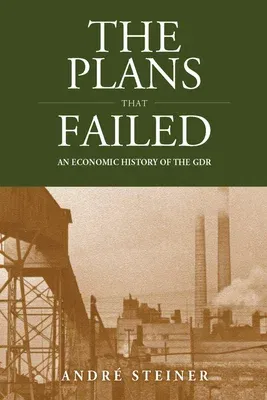André Steiner
(Author)The Plans That Failed: An Economic History of the GdrHardcover, 1 September 2010

Qty
1
Turbo
Ships in 2 - 3 days
In Stock
Free Delivery
Cash on Delivery
15 Days
Free Returns
Secure Checkout

Part of Series
Studies in German History
Part of Series
Studies in German History, 13
Print Length
236 pages
Language
English
Publisher
Berghahn Books
Date Published
1 Sep 2010
ISBN-10
184545748X
ISBN-13
9781845457488
Description
Product Details
Author:
Book Format:
Hardcover
Country of Origin:
US
Date Published:
1 September 2010
Dimensions:
23.39 x
15.6 x
1.42 cm
ISBN-10:
184545748X
ISBN-13:
9781845457488
Language:
English
Location:
New York, NY
Pages:
236
Publisher:
Weight:
508.02 gm